Description
Maitake mushroom:
Grifola frondosa is a polypore mushroom that grows in clusters at the base of trees, particularly oaks. The mushroom is commonly known among English speakers as “hen of the woods”, ram’s head and sheep’s head. It is typically found in late summer to early autumn. Like all polypores, the fungus becomes inedible when older, because it is then too tough to eat. It is native to China, the northeastern part of Japan and North America.
Reishi mushroom:
The lingzhi mushroom is a polypore mushroom belonging to the genus Ganoderma. Its red-varnished, kidney-shaped cap gives it a distinct appearance. When fresh, the lingzhi is soft, cork-like and flat. It lacks gills on its underside, and instead releases its spores via fine pores. Depending on the age of the mushroom, the pores on its underside may be white or brown. It grows at the base and stumps of deciduous trees, especially the maple.
Shiitake mushroom:
Lentinula edodes are widely eaten as a food and used in herbal preparations in the Far East and South America. They have more recently grown in popularity in the West and contain triterpenes, polysaccharides and lentinan.
Lion’s Mane mushroom:
Hericium erinaceus (also called lion’s mane mushroom, monkey head mushroom, bearded tooth mushroom, satyr’s beard, bearded hedgehog mushroom, pom pom mushroom, or bearded tooth fungus) is an edible mushroom belonging to the tooth fungus group.
Chaga mushroom:
Inonotus obliquus, commonly known as chaga (a Latinisation of the Russian word чага), is a fungus in the family Hymenochaetaceae. It is parasitic on birch and other trees. The sterile conk is irregularly formed and has the appearance of burnt charcoal. It is not the fruiting body of the fungus, but a sclerotium or mass of mycelium, mostly black because of the presence of massive amounts of melanin.
Astragalus root:
Astragalus propinquus, commonly known as Mongolian milkvetch in English and as huáng qí, běi qí or huáng huā huáng qí in Chinese, is a flowering plant in the family Fabaceae. It is one of the 50 fundamental herbs used in traditional Chinese medicine.
Acerola cherry (with naturally occurring vitamin C):
These cherries contain naturally high levels of vitamin C (30 times the amount found in oranges of the same weight), as well as approximately 150 other nutritive constituents, including bioflavonoids, proteins, mineral salts, iron, calcium and phosphorus.
Vitamin C contributes to maintaining the normal function of the immune system. It also contributes to normal collagen formation for the normal function of blood vessels, bones, cartilage, gums, skin and teeth, normal energy-yielding metabolism, normal functioning of the nervous system, normal psychological function, protection of cells from oxidative stress, the reduction of tiredness and fatigue, the regeneration of the reduced form of vitamin E and increases iron absorption. Click here and here for EFSA scientific opinions.
Black pepper:
Black pepper (Piper nigrum) is a flowering vine in the family Piperaceae, cultivated for its fruit, which is usually dried and used as a spice and seasoning. When dried, the fruit is known as a peppercorn. When fresh and fully mature, it is approximately 5 millimetres (0.20 in) in diameter, dark red, and, like all drupes, contains a single seed. Peppercorns, and the ground pepper derived from them, may be described simply as pepper, or more precisely as black pepper (cooked and dried unripe fruit), green pepper (dried unripe fruit) and white pepper (ripe fruit seeds). Piperine is the alkaloid responsible for the pungency of black pepper.
Cholesterol
A mushroom within our capsule (maitake) is scientifically proven to lower a user’s cholesterol. Research in 2013 showed that these mushroom types make the arteries become much clearer. This is an amazing benefit as cholesterol levels in the arteries will decrease.
This allows the heart to work at a much better rate. Reducing the risk of heart attacks and strokes. The reduction of blood pressure is also beneficial with our mushroom capsules and linked with cholesterol. Having the heart not work as hard reduces the risks associated with high cholesterol such as heart attacks, strokes and kidney disease.
Ulcers
Lion’s mane protects users from suffering ulcers as it protects the stomach lining. This is because it prevents the growth of H. pylori. Lion’s mane added to the capsule formula makes it a great addition to any buyer and extra protection from uncomfortable infection.
Lion’s mane research has shown results that it’s helpful with inflammation around the digestive area. Stopping damaged tissues in the process. Chronic inflammation is said to lead to oxidative stress.
Scientists believe this is the root of most modern illnesses; illnesses such as heart disease, cancers and autoimmune disorders. Lion’s mane has been shown to be able to help reduce the effect of such illnesses.
Vitamin C Deficiency
Our mushroom complex capsules contain vitamin C. Obtaining vitamin C allows a person to absorb iron more from their diet. This is even more beneficial for people on a meat-free diet.
Obtaining more iron in your diet increases energy levels, makes skin age well and can help improve sleep. The addition of vitamin C in this capsule makes it an overall great product for you to obtain.
Vitamin C has also been linked with helping common illnesses such as colds and flu. Studies suggest that intake of vitamin C helps when a person catches a cold. It reduces the severity and duration of a cold – another reason why our mushroom capsules are so useful to buyers.

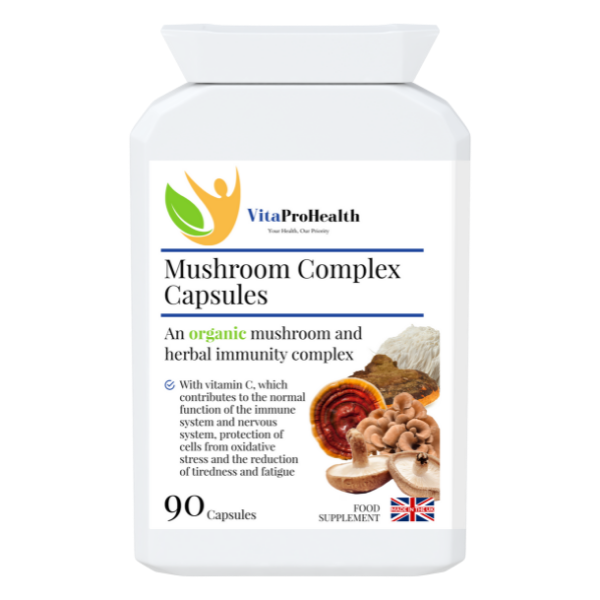
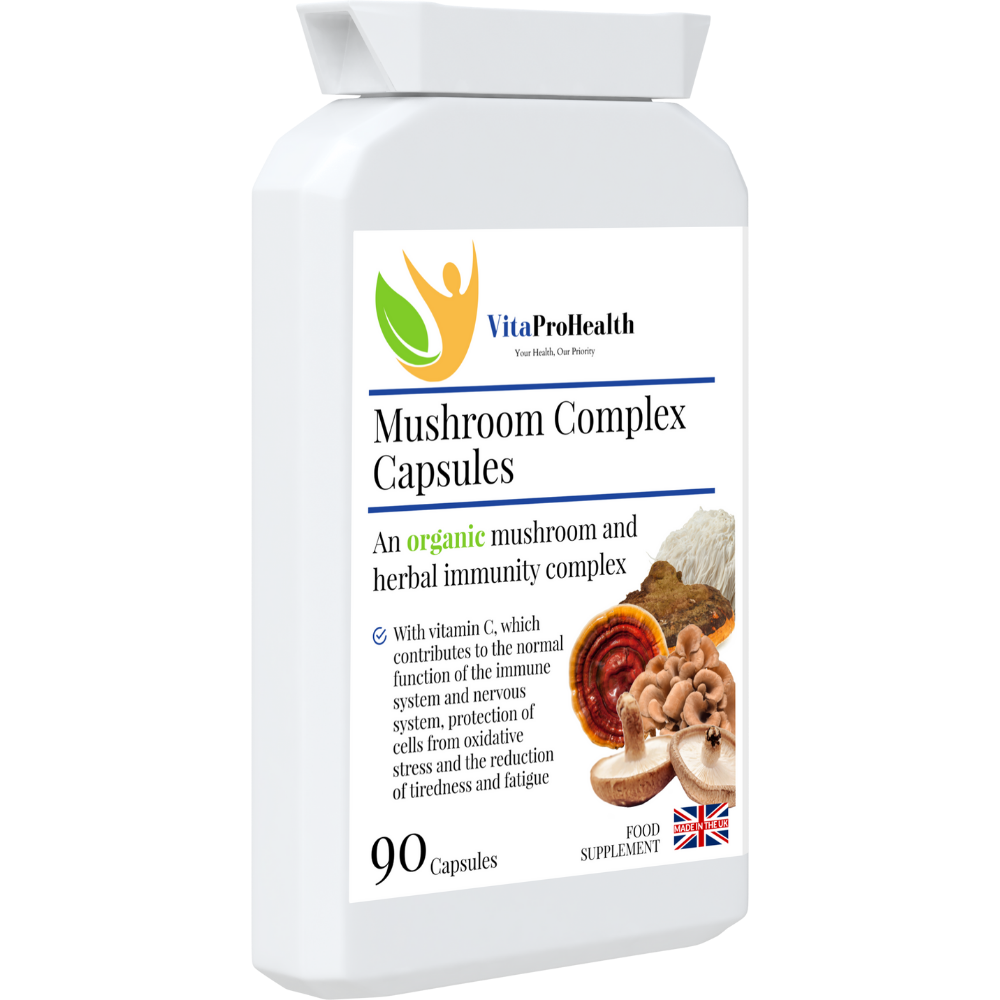

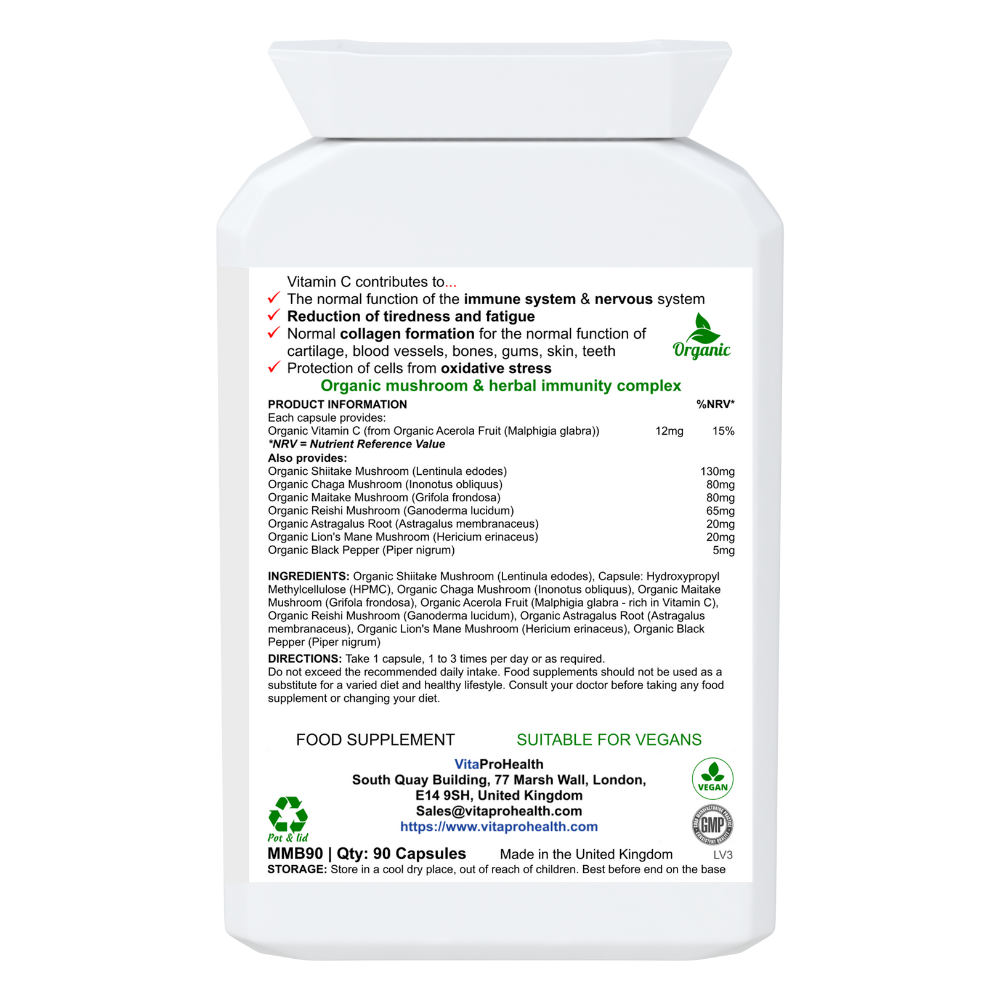
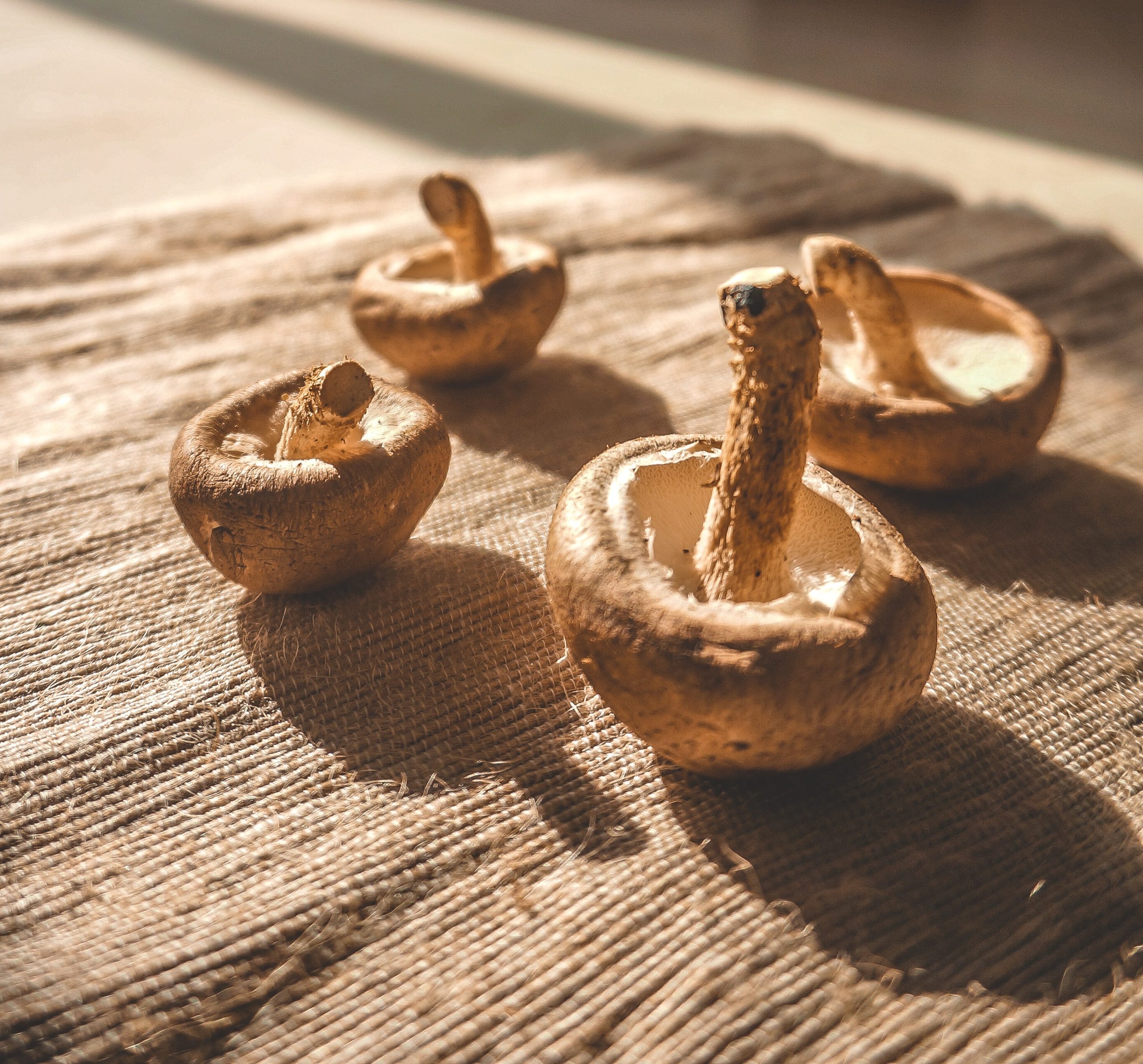


















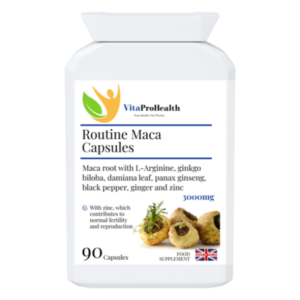
Reviews
There are no reviews yet.